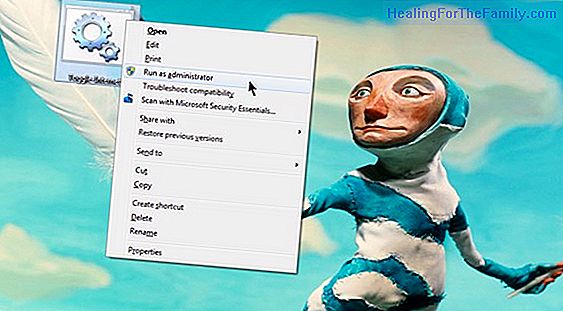Influenza in children. When to go to the pediatrician?
Usually, the flu is not a serious illness. Children have a fever, runny nose, cough, sore throat, headache, muscle aches, vomiting and / or diarrhea. They spend a regular week, but in the end they heal without problems. However, sometimes, the flu can be complicated, especially in younger children,
Usually, the flu is not a serious illness. Children have a fever, runny nose, cough, sore throat, headache, muscle aches, vomiting and / or diarrhea. They spend a regular week, but in the end they heal without problems.
However, sometimes, the flu can be complicated, especially in younger children, and in those who have chronic underlying diseases, such as asthma or immunodeficiencies.
3 reasons to take the child to the pediatrician for the flu

In the flu, the fever usually lasts less than a week, while other symptoms such as cough or runny nose can last up to two weeks. Therefore, it is common for parents to consult their pediatrician or hospital emergency services on one or more occasions. In reality, these visits are not usually necessary y, and cause collapses in the health systems, although it is understandable that families are frightened and seek solutions (although treatment as such does not exist). What we should and can do is monitor at home a series of signs and symptoms that should alarm us and, if they do appear, go to the pediatrician. These signs and symptoms are the following: F 1. Fever of more than 5-7 days of evolution.In these cases it is convenient to explore the child and assess the performance of some tests to rule out superinfection by bacteria. The fever is not more than a defense mechanism of our organism, it is not any sign of gravity. Always assess the general state of the child. If you are happy with fever, there is no cause for alarm (even if the fever is high). If fever is gloomy, off, wrinkled in a blanket, it is expected and normal (adults also happens). If when he is without a fever (or is lowering him) he is happy, running, playing, citing the great classic of the parents: 'Doctor, you will not believe it. At home he was terrible but here he is so happy, it seems that he is not bad, 'then there is no cause for concern either. Only in the case that is decayed, even in the periods without fever, is when it would be convenient to go to the pediatrician.
2. Respiratory difficulty. It is important to indicate that the difficulty in breathing is not that the child has nasal congestion and makes noises when breathing through the nose. This is annoying and makes children uncomfortable, but it is normal, as in any case of a cold. What we have to watch out for is that the child does not use accessory muscles to breathe: that is, the ribs sink or are marked or the intestine moves a lot when breathing. These movements indicate that your body needs extra effort to maintain good ventilation, and this may suggest some type of complication, which should be evaluated by a pediatrician. In general, when a child has difficulty breathing, it does not generate doubts in the parents. If there are doubts, it is that the child probably does not have any problem.
3. Dehydration. The signs that show good hydration, and should reassure us, are those that indicate that 'the body has enough liquid to waste it in areas where its presence is not vital'. That is to say, a well-hydrated child is one who has saliva in his mouth, who drools, who cries with tears, who urinates in a normal amount and who has an elastic and turgid skin that, when released, quickly returns to its place (it does not remain wrinkled) after a pinch, as happens for example in the elderly). Therefore, it is advisable to go to the pediatrician in case the mouth of our son is dry (as if he had taken three polvorones followed), who cries without releasing a tear, whose skin begins to wrinkle or has more than 8 -12 hours without urinating.
This type of guide is only intended to inform and reassure parents, as well as to seek their involvement in the health of their children. Of course, if you have doubts, fears or are worried, it is best to visit the pediatrician, for that they are.












